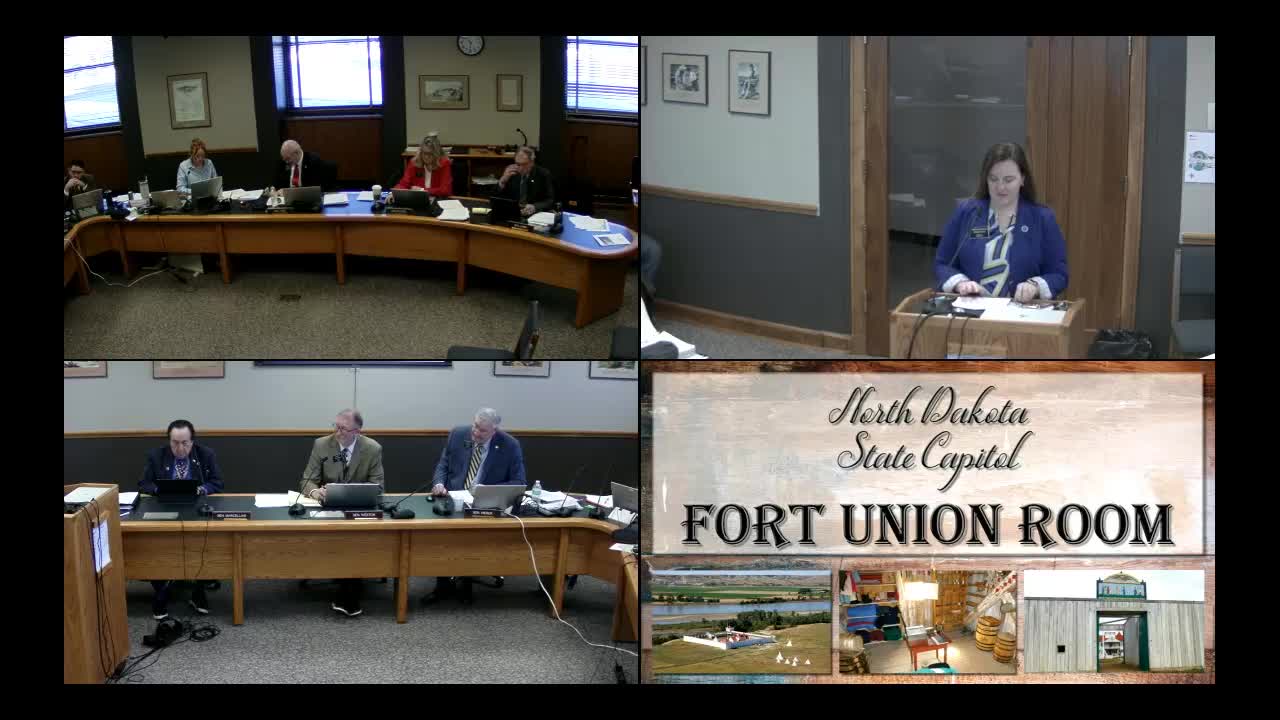Committee advances fix to statute language to align state veteran benefit rules with VA terminology
Get AI-powered insights, summaries, and transcripts
Subscribe
Summary
House Bill 11-80 would amend North Dakota law to match Department of Veterans Affairs terminology on combined service‑connected evaluations and individual unemployability so veterans receive intended state benefits without administrative confusion.
The Senate Agriculture and Veterans Affairs Committee voted to give House Bill 11‑80 a do-pass recommendation. The bill updates statutory language to align North Dakota Century Code with federal Department of Veterans Affairs terminology for combined service‑connected disability evaluations and Individual Unemployability (IU) findings.
Representative Brandy Pyle, sponsor of the bill, described it as housekeeping with “significant implications” and said mismatches between state statutory wording and VA letters cause delays and denials at local offices. “Our intent with this bill is…to clear up the language in North Dakota Century Code to reflect the verbiage used in VA letters on a combined service connected evaluation and individual unemployability,” Pyle said.
Lonnie Wong, commissioner of the Department of Veterans Affairs, showed how the VA reports a combined service‑connected evaluation (for example 90 percent) while separately recognizing that an individual is paid at the 100 percent rate because of IU. The VA’s method for combining multiple disability ratings — sometimes referred to in testimony as “VA math” — uses multiplicative steps and rounding that can make a veteran’s combined percentage look less than 100 percent even when the veteran receives 100 percent compensation because they are rated as unemployable. Wong explained that local staff unfamiliar with the VA format may deny state benefits that require a 100 percent determination because the front page of the VA letter shows a combined percentage less than 100.
Wong and Pyle said the bill does not create new benefits or change eligibility rules; it simply clarifies statutory wording so veterans who are paid at the 100 percent IU rate by the VA are recognized for state programs that rely on that standard. Examples given in testimony of state benefits affected included tuition waivers for dependents, property tax exemptions, and vehicle excise exemptions tied to a 100 percent rating.
After testimony and questions, the committee voted to advance the bill with a do-pass recommendation.
Ending: Supporters said the change will reduce administrative confusion at local agencies and help veterans secure benefits they already earn under federal determinations; the bill was recommended for passage by committee.
